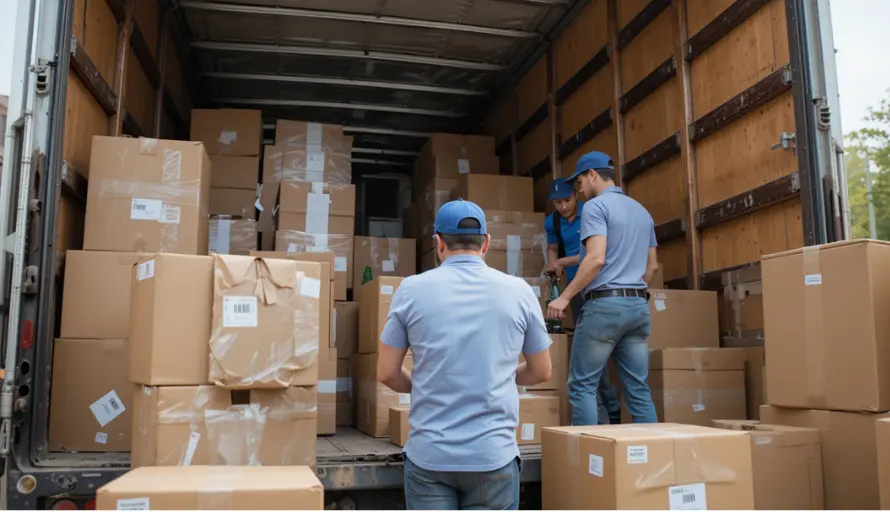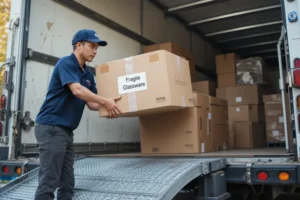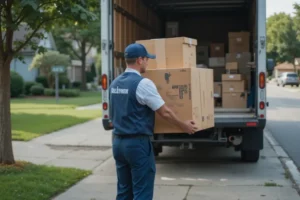Declutter before moving by donating, selling, or recycling items you no longer need. Reducing your shipment size can lower your interstate moving costs.
What You Need to Do Before Moving to Another State

Get Your Free Moving Estimate
Moving to another state can be one of the most exciting and challenging life decisions you’ll make. Whether it’s for a new job, family, education, or simply a change of scenery, careful planning is the key to a smooth transition.
Here’s a step-by-step guide to make sure you’re fully prepared before the big move.
1. Create a Moving Timeline and Checklist
Planning early will help you avoid last-minute stress. Ideally, start preparing 8–12 weeks before your move.
What to include on your moving checklist:
-
Finalize your moving date.
-
Research state-to-state moving companies and request quotes.
-
Notify your landlord or sell your home.
-
Begin downsizing and organizing your belongings.
-
Schedule important services like packing, transportation, and storage if needed.
Pro Tip: Hiring a full-service moving company can save time and energy. They’ll handle everything from packing to unpacking, so you can focus on settling into your new home.
2. Budget and Get Accurate Quotes
State-to-State moves involve costs for transportation, packing materials, insurance, and sometimes temporary housing. Create a realistic moving budget to avoid financial surprises.
Key budgeting tips:
-
Compare pricing from top-rated state-to-state movers.
-
Ask about extra fees for heavy or specialty items.
-
Factor in travel costs, meals, and accommodations during the move.
-
Include post-move expenses like utility deposits or new furniture.
3. Research and Hire the Right Movers
Not all movers are equal especially for state-to-state moves. Look for a company that’s licensed by the FMCSA, has excellent reviews, and offers transparent pricing.
What to look for in a mover:
-
DOT number and state-to-state moving license.
-
Positive customer reviews on trusted platforms.
-
Options for full-service moving, including packing and storage.
-
A detailed moving contract with no hidden fees.
Get Best State-to-State Moving Quotes (Free)
Loading Best Moving Companies...
4. Declutter and Downsize
Moving across state lines is the perfect time to let go of items you no longer need. The less you take, the cheaper and easier the move.
Ways to downsize:
-
Donate clothes and household items to charity.
-
Sell unwanted items online or at a garage sale.
-
Dispose of damaged or outdated items responsibly.
5. Pack Smart or Let the Pros Handle It
If you’re packing yourself, use sturdy boxes, proper labeling, and quality packing supplies. For high-value or fragile items, it’s worth using professional packing services to avoid damage during transit.
Final Thoughts
Moving to another state is a big step but with proper planning, a clear checklist, and the right full-service state-to-state moving company, it doesn’t have to be stressful. Investing in professionals can save you time, protect your belongings, and help you transition into your new home with ease.
Ready to save?
Compare quotes from the best-rated full-service state-to-state movers now using the above companies’ quotes and lock in your lowest price of the year.
Frequently Asked Questions (FAQs)
What is the first thing I should do before moving to another state?
The first step is to create a moving checklist that includes securing a licensed full-service state-to-state moving company, researching your new location, and budgeting for all relocation expenses. Booking movers early ensures better rates and availability.
How can I estimate the cost of moving to another state?
You can request a free moving quote from licensed state-to-state movers. Pricing depends on distance, move size, services (like packing or storage), and time of year. Full-service movers handle everything from packing to unloading, saving time and effort.
Is hiring a full-service mover worth it for a state-to-state move?
Yes. Full-service movers manage the entire process packing, loading, transporting, and unpacking reducing stress and physical effort. They also provide insurance coverage, ensuring your belongings are protected throughout the journey.
What should I do with items I don’t want to take?



